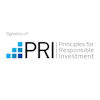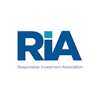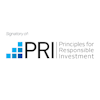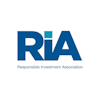
Investing for a sustainable future
Take the right steps to ensure a sustainable future for everyone.
2023 Sustainable Development Report
Find out about our actions for sustainable development in 2023

As non-profit organizations, FÉRIQUE Fund Management and its subsidiary, FÉRIQUE Investment Services, have always strived to have a positive impact on society, taking into account the interests of their stakeholders.
We believe that for the good of the planet and for our clients, employees, and society, we must continue to act as a responsible company and take the right steps to ensure a sustainable future for everyone.

To ensure the sustainability of our organization, our governance structure is designed to promote sound operational management and a culture of ethics and transparency.

At FÉRIQUE, people are at the heart of our concerns. We aspire to create a positive and lasting impact on our people, our clients, and the community.

At FÉRIQUE Fund Management, we aim to contribute to the fight against climate change by implementing initiatives to reduce and offset our organization’s carbon footprint and by raising awareness of environmental issues among our stakeholders.

At FÉRIQUE Fund Management, while prioritizing the performance objectives of our Funds, we believe that responsible investment can serve as a catalyst for positively contributing to the transition towards a sustainable economic model.
Some milestones





The FÉRIQUE Funds adopt a proxy voting policy based on ESG best practices

FÉRIQUE Fund Management adheres to the United Nations Principles for Responsible Investment
Creation of the Responsible Investment Policy

Our collaboration with Æquo gives us the opportunity to increase our influence in promoting best practices.

FÉRIQUE Fund Management becomes a signatory to the Climate Action 100+ and member of the Responsible Investment Association (RIA).
Through a variety of strategies, these funds contribute to the effort to fight climate change, and also aim to make a positive contribution to society through their sustainable development approach.
FÉRIQUE Fund Management signs the Canadian Investor Statement on Climate Change
Calculation of the carbon footprint of the FÉRIQUE Fund family